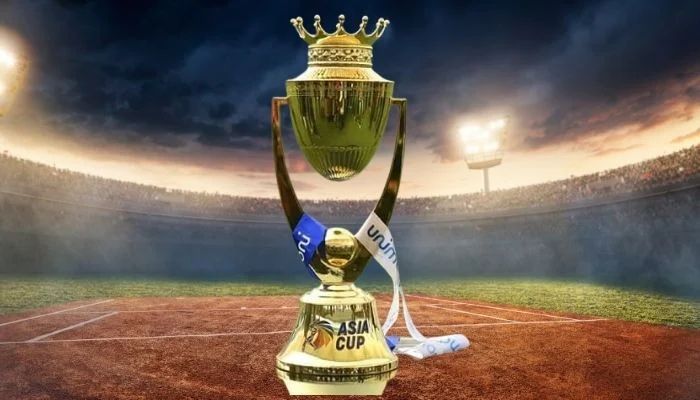What began as a thrilling conclusion to the Asia Cup, with India clinching a dominant victory, quickly veered into an unforeseen diplomatic quagmire. The traditional celebratory moment of the champions lifting their hard-earned trophy was overshadowed by an unprecedented standoff, culminating in the controversial removal of the trophy from the presentation stage.
The Incident That Stunned Cricket Fans
Following a decisive performance by the Indian team, the stage was set for the customary trophy presentation. However, anticipation soon gave way to confusion. Reports indicate a significant delay, followed by the Pakistan team`s late arrival. The core of the issue emerged when the Indian squad reportedly declined to receive their winners` medals and the Asia Cup trophy from Mohsin Naqvi, the Asian Cricket Council (ACC) chief, who also serves as Pakistan`s Interior Minister. The Indian team`s refusal was reportedly a direct response to Naqvi`s perceived “anti-India stance.”
In a move that caught many by surprise, Naqvi subsequently departed the ceremony, taking both the coveted trophy and the winners` medals with him. This act instantly transformed a moment of sporting triumph into a focal point of international cricketing controversy.
BCCI`s Strong Condemnation: An “Unethical” Act
The Board of Control for Cricket in India (BCCI) quickly voiced its disapproval, with Secretary Devajit Saikia labelling Naqvi`s actions as “unethical.” In an exclusive statement, Saikia expressed profound astonishment at the ACC chief`s behaviour.
“The ACC chief wanted to distribute the trophy but we made it clear that we won`t be receiving the title from him,” Saikia stated. “We are surprised that the ACC chairperson, in a very incorrect manner, took away the trophy and the medals with him. It was unexpected as they legally and ethically belong to India. We can only hope that he will return the trophy and medals to the Indian team. I hope he keeps them in a proper manner so it doesn`t get damaged.”
Saikia`s remarks underscore the BCCI`s position that the trophy and medals are the rightful property of the Indian team, earned through their performance on the field. The explicit concern over their proper handling further highlights the gravity of the situation, hinting at a broader disappointment over the lack of sportsmanship.
A Champion Denied Its Moment
The players themselves were not immune to the disappointment. India captain Suryakumar Yadav articulated the team`s sense of injustice, emphasizing the rarity of such an occurrence in the sport.
“This is one thing which I have never seen since I started playing cricket, started following cricket – a champion team is denied a trophy, that too a hard-earned one,” Yadav remarked. “I feel we deserved it. And I can`t say anything more. If you tell me about trophies, mine are sitting in the dressing room, all 14 guys with me, the support staff – those are the real trophies throughout this journey in the Asia Cup.”
Yadav`s words paint a clear picture of a team proud of its achievements, yet robbed of a significant celebratory ritual – the collective hoisting of the tournament prize. His sentiment that the “real trophies” are his teammates and support staff reflects a commendable professional detachment from the physical prize, yet simultaneously underscores the symbolic importance of the traditional presentation.
When Sports and Politics Intersect: An Unfortunate Irony
This incident serves as a stark reminder of the delicate line between sportsmanship and geopolitics, particularly in a region where cricketing rivalries often mirror broader diplomatic tensions. The ACC, as the governing body for cricket in Asia, is ostensibly tasked with fostering goodwill and fair play. For its chief to be implicated in such a controversy raises valid questions about the council`s neutrality and its ability to rise above political differences. It`s a curious irony that a figure meant to uphold the integrity of the game would become central to an act deemed “unethical” by a participating nation.
A competition designed to celebrate athletic excellence and regional camaraderie concluded with an act that, by many accounts, was antithetical to the very spirit of cricket. While the Indian team secured its sporting victory on the pitch, the post-match events have unfortunately etched a different kind of memory into the annals of the Asia Cup – one of an avoidable, ethically questionable drama that momentarily eclipsed the joy of achievement.
Looking Ahead: The Path to Resolution
As the cricketing world digests this unusual development, the immediate question remains the return of the trophy and medals to their rightful claimants. Beyond that, the incident prompts broader reflections on governance in international sports and the measures required to ensure that such controversies do not detract from the integrity and enjoyment of the game. Cricket, at its heart, is often called a gentleman`s game, and moments like these challenge that very foundation, urging stakeholders to prioritize fair play and ethical conduct above all else.

